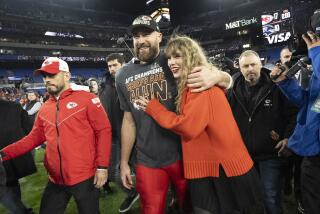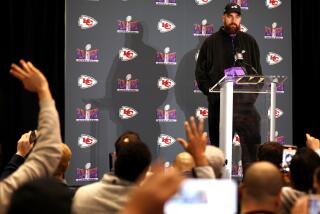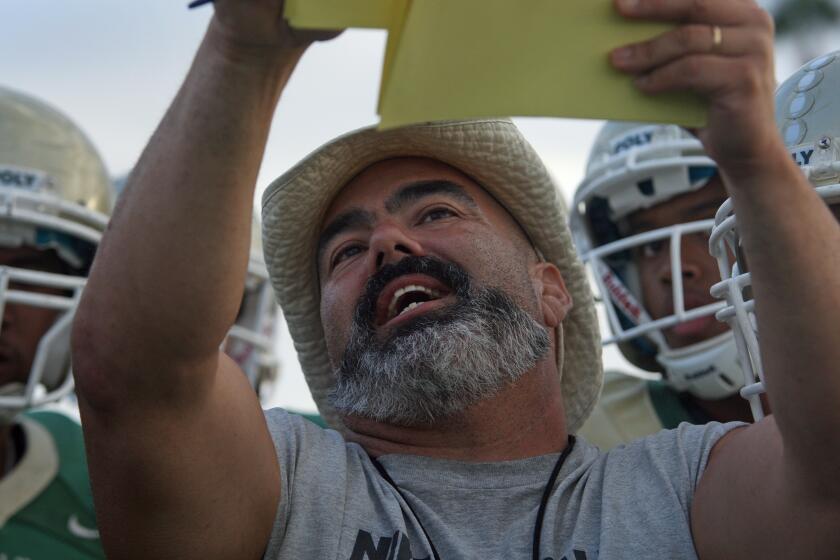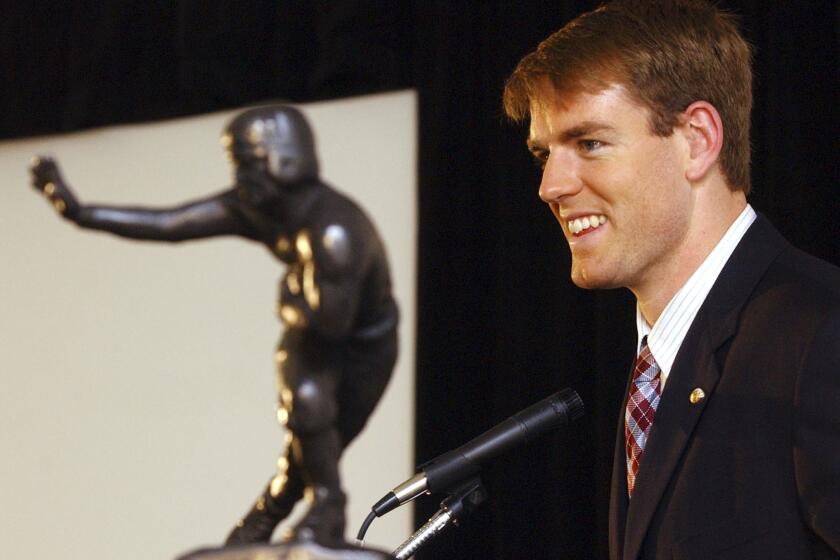NFL quarterbacks speak a language all their own
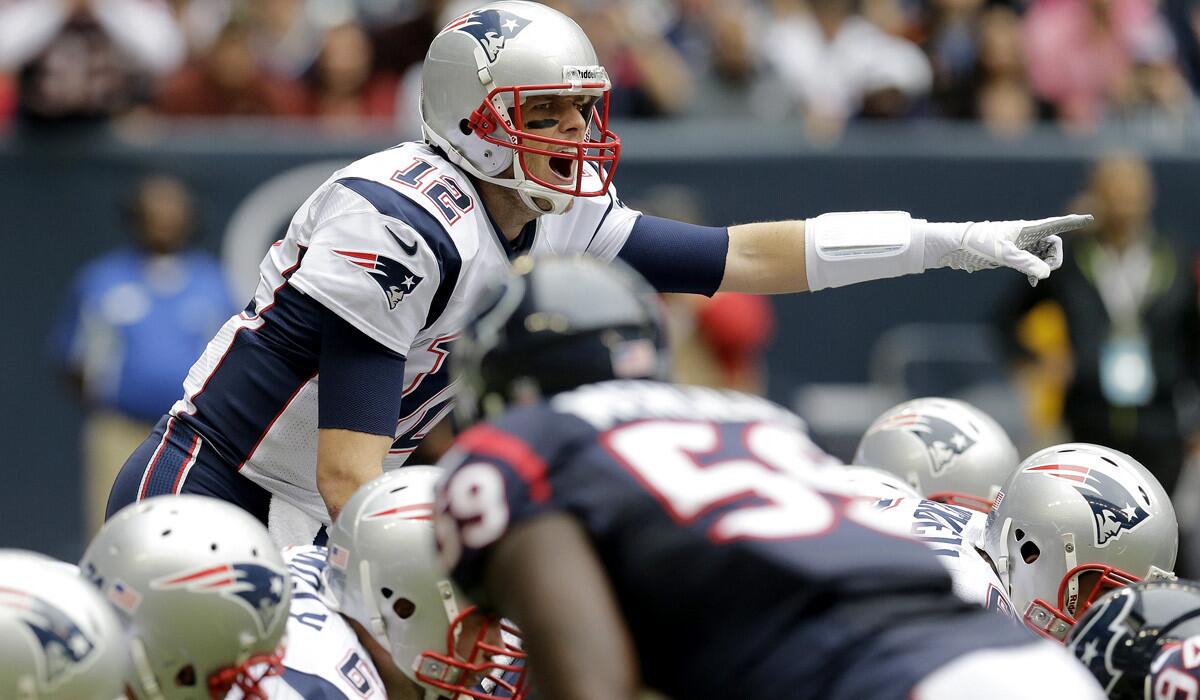
DENVER — Jim Zorn has a daughter named Sarah. Brock Huard’s wife is Molly.
Why is that significant?
Because when they were with the Seattle Seahawks — Zorn as quarterbacks coach, Huard as a quarterback — they weaved the names Sarah and Molly into the offense. There’s an R in Sarah, so that was a screen to the right. Molly has two Ls so it was a screen to the left.
When Sam Wyche was coaching in Cincinnati, he used the acronym “BOSS” for the blocking scheme “Back On Strong Safety.” Because that was too easy a code to crack, the Bengals called that strategy “Bruce,” as in Springsteen, “The Boss.” When they were playing a division opponent for a second time, they switched the word for that assignment to “Paul,” in honor of their boss, Bengals owner Paul Brown.
NFL quarterbacks have to be multilingual when it comes to communicating with the rest of the offense before the ball is snapped, and speaking in code that the defense cannot decipher.
“The words are the thing,” said Matt Hasselbeck, backup quarterback for the Indianapolis Colts, who open Sunday night against Denver at Sports Authority Field. “I’ve been in an offense where if you use any college mascot, it means something. If you use a baseball team, it means another thing. If you use the name of any kind of bubble gum, it means something else.”
Quarterbacks use hand signals, too, especially in loud stadiums. For instance, when Drew Bledsoe was playing for Buffalo and wanted a receiver to run a hitch, he would pantomime putting a wedding band on his ring finger, as if he were getting “hitched.”
When Jim Harbaugh was playing quarterback, and he wanted a receiver to run a “lookie” route, he would hold his hands to his eyes as if adjusting imaginary binoculars.
“What you’re trying to do is paint a picture,” said Harbaugh, coach of the San Francisco 49ers. “There’s only so much gray matter for the brain to memorize things. If you just come up with a random word, ‘sky,’ and it’s a running play, what are we doing there? You want to come up with a word that relates to what you’re trying to get across.”
Brevity is key. Because the play clock is ticking down, quarterbacks need to relay a lot of information in as few words as possible. They are telling the other 10 offensive players what the formation, play and snap count are, and ideally doing it in a way that no one else can figure out.
Hasselbeck is a longtime starter who is in his 16th NFL season with his fourth team, so he’s fluent in several made-up languages.
“You’ll see guys that didn’t graduate college, never got good grades, but they can memorize an offense better than some MBA student at a prestigious university,” he said. “People learn different ways. When you make it about something someone cares about or really enjoys, they learn it.”
Wyche was an expert at teaching players nonsensical code. He would tell stories to his players and weave in names that represented parts of plays, stuff that would have sounded like gibberish to anyone outside the men on his roster.
“He was a genius in how he taught it,” recalled former quarterback Trent Dilfer, who played for Wyche at Tampa Bay. “When he would teach a play, he would tell a story. And it was a story like, ‘Hey, you walk into a big auditorium and immediately to your left is a clown. There’s a grandma to your right. And then in the middle there’s this giant elephant, and this elephant had purple painted toenails on its left foot that was actually pink.’
“And he would tell this dramatic story, then put a bow on it by naming the play after the odd things he just talked about in the story.”
Of course, much of what the quarterback says at the line of scrimmage is phony, meaningless words to distract or fool a defense.
“It’s actually not that difficult to come up with the real stuff,” Hasselbeck said. “But coming up with something bogus is hard.”
Last summer, Hasselbeck was fined by his fellow Colts quarterbacks for getting “too cute” at the line of scrimmage during training camp. In an effort to come up with fake verbiage, he turned to kids’ cartoons.
“My code word was, ‘Dora, Dora, Dora the Explorer! Swiper no swiping!’” he said. “The fans were out and they could hear it. They got a chuckle. I really wasn’t trying to be cute. I just needed some mindless thing I could say that I know doesn’t interfere with the real word.”
Then again, maybe he was on to something.
“I actually think it distracted some of the guys on defense,” he said. “A lot of them have young toddlers.”
Twitter: @LATimesfarmer
More to Read
Get our high school sports newsletter
Prep Rally is devoted to the SoCal high school sports experience, bringing you scores, stories and a behind-the-scenes look at what makes prep sports so popular.
You may occasionally receive promotional content from the Los Angeles Times.

